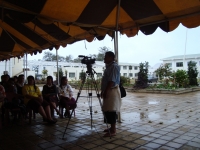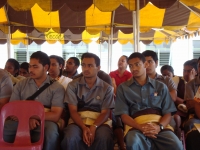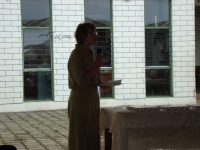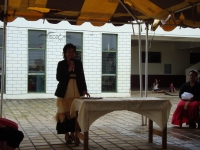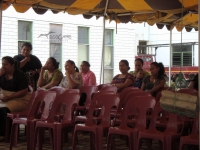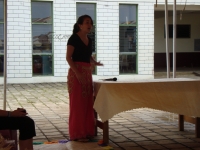Jan 2008 - present
Tongatapu, Tonga
Summary
In partnership with the University of Canterbury, EcoCARE set up a nation high school science competition in Tonga. This competition enables us to identify the academic capacity of Tongan high schools students and to offer them some incentive to excel. Prizes packages for the three top projects included a microscope, computer and dictionary to help these students further their education.
In addition, the College of Science at the Unversity of Canterbury has created a scholarship for one Tongan student, starting in 2009. This is a fully funded, 4.5 year scholarship and Campus Living offered a full accommodation scholarship for students in this programme, for the full period. Students in this programme will be bound by the scholarship to return to Tonga for a period of 5 years on completion of the degree.
Details
As per the Ministry of Pacific Affairs data, 48-49% of Pacific Island students do not complete first year university. So what would cause such a high non-completion rate?
Academic ability - Do Tongan students have the academic background to meet UC requirements?
- To answer this question I spent some time researching the high school curriculum and found that it matched the New Zealand HS curriculum. In fact Steve French from the UC Department of Education and others, have played significant roles in developing the Tongan high school and primary school curriculum.
- To assess student’s capacity, I established the EcoCARE/UC National Science Competition and believe me when I say that there were numerous projects (at least 8) that I felt would receive an 85% and greater mark at 2nd year undergraduate level for their projects. Prof. Paula Jameson (who participated in the competition assessment) and I saw high levels of academic ability.
Practical skills - I have visited almost every high school in Tonga and even the best schools are almost completely lacking adequate resources. Many school wood work lessons require the teacher to mimic sawing wood as there are no saws, biology teachers asking students to imagine what it is like to look through a microscope and so on. One or two old, 200 MHz processor computers is common, long hand calculations or even slide rules are still used in some situations.
Culture and religion - A real contrast and one that is not addressed by any other scholarship that I have seen. Students may come from large families (8-18 members). Dress for a 23-33 degree Celsius climate. Lots of religious participations, members of choirs and so on.
Student Selection - Scholarships awarded by other organisations use the following format: One return air fare on completion. Scholarship allocated by the Ministry Lack recognition of the contrasting cultural experience Lack recognition of the student’s lack of access to resources and technology. Not fully funded so often does not enable students from poor backgrounds to participate. The combination of these issues means that an under prepared student is placed in an extremely different culture and environment with little or no support. The student is usually from a noble or well to do family (as these are the only ones able to offer the financial support required to meet the additional costs that the scholarship does not meet) consequently they are not necessarily the best candidates who have had little or no access to resources that most students take for granted.
Our program addresses many of these issues;
The establishment of the National Competition enables informal assessment of a student’s abilities. Students interested in applying for the scholarship are interviewed where they are asked appropriate questions that relate to their situation, their desire, their capacity, background, whether they demonstrate ownership of the project and so on. Because Campus Living will waive all accommodation costs and Bridging Programs will waive half fees, the College of Science scholarship addresses all of the student's needs meaning that students from any economic or social background can apply and take up this life-changing offer. 4 return air fares enables students to return home each Christmas to renew family ties. EcoCARE, the University of Canterbury, the Tongan Community Council and Department of Pacific Affairs in Christchurch have developed a good relationship and they are most happy to support the student’s cultural and religious needs. Enrolment in the Foundation Studies course will enable the student to address their lack of exposure to facilities and resources.
